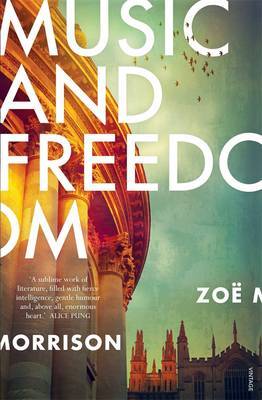Music and Freedom

Music informs this novel at almost every level, central to its characterisations, narrative and plot, even influencing its structure and supplying its metaphorical qualities. Alice Murray, narrates her life in rural Australia and England in this beautifully written debut novel. Music alternatively liberates and imprisons her. A child prodigy, at the age of seven she is sent from her family’s hard scrabble farm in New South Wales to boarding school in England’s north. Circumstances prevent her return. Her life on the farm, at school, in London under a music scholarship to become a concert pianist, married into Oxford’s sealed and cloistered world, is told in a detached and musical voice. The detachment is a sad necessity, a defence against the brittleness of her circumstances and oppressiveness of her life. Alice’s husband, an economics professor, promotes a radical free market theory as a whole-of-life philosophy and a page full of graphs as a description of our world. He is also violent, obsessive and controlling.
There is music in the language of this book; at times complex, staccato and technical, at others soaring and swooping with virtuosic flair. A description of pianists playing as, “…stepping into the air with each note, …[as] blind people walking into a strange room, arms out, hands searching, stretching, pressing, reaching further and further into the music” is at once lyrical and metaphorical, an exemplar in this author’s exploration of a quest for family and the redemptive power of love.
